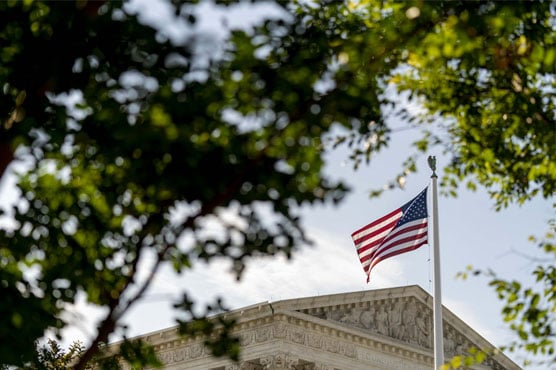Synopsis
The U.S. High Court on Monday dismissed a bid by four Democratic-inclining states to lift a cap on government derivations for state and nearby assessments set up as a feature of a 2017 expense update under Republican previous President Donald Trump.

The U.S. High Court on Monday dismissed a bid by four Democratic-inclining states to lift a cap on government derivations for state and nearby assessments set up as a feature of a 2017 expense update under Republican previous President Donald Trump.
Supreme court of US rejects tax deductions bill
The U.S. High Court on Monday dismissed a bid by four Democratic-inclining states to lift a cap on government derivations for state and nearby assessments set up as a feature of a 2017 expense update under Republican previous President Donald Trump.
The judges dismissed an allure by New York, Connecticut, Maryland, and New Jersey after a lower court tossed out their claim. The lower court held that the U.S. Congress had expansive authority over taxes and didn’t disregard the U.S. Constitution by putting a $10,000 limit on how many states and nearby expenses people might deduct on government annual assessment forms.
Popular President Joe Biden’s organization went against the four states.
As far as possible, known as the SALT cap, was important for a Republican-upheld government charge regulation endorsed by Trump that cut the corporate expense rate and carried out a personal tax reduction for people, which charge strategy specialists said helped rich Americans the most.
Leftists had gone against the law, which was supposed to diminish government incomes by $1.5 trillion north of 10 years. Covering the allowance excessively influences high-charge, frequently Democratic-inclining states, with New York assessing its citizens would pay $121 billion of additional government charges from 2018 to 2025.
The four states sued Trump’s organization in 2018, calling the cap an illegal endeavor to slow down states’ burdening power and force Democratic-inclining states to curtail government expenditures and the administrations they pay for.
The Manhattan-based second U.S. Circuit Court of Appeals last year dismissed the states’ contentions, deciding that they didn’t show that their wounds were sufficiently huge to bring about an established infringement.
A large portion of the 2017 regulation’s singular duty arrangements, including the SALT cap, lapse after 2025.
Read More News On
Catch all the International News, Breaking News Event and Latest News Updates on The BOL News
Download The BOL News App to get the Daily News Update & Follow us on Google News.




